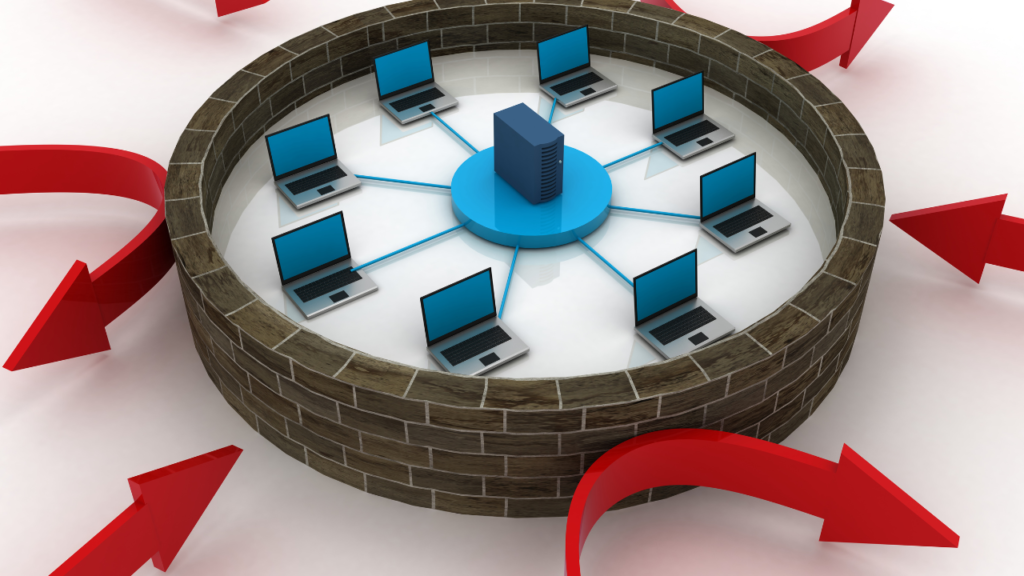In the vast world of network security, two titans often come under scrutiny – proxies and firewalls. Both play pivotal roles in safeguarding our digital information, yet their functions often intertwine, leading to misconceptions. What do they truly signify? And in the age-old debate of “proxy vs firewall,” which one takes the upper hand? Let’s venture into this intricate tapestry of cyber defense.
Understanding Proxies
What Is a Proxy Server?
A proxy server acts as an intermediary between a user’s device and the internet. It stands as a sentinel, transmitting requests and receiving responses on behalf of the user, thereby hiding the user’s IP address.

How Do Proxies Work?
Proxies intercept requests from users, forwarding them to the target server. Upon receiving the response, the proxy sends it back to the user. This process adds a layer of anonymity and security.
Types of Proxy Servers
Proxies come in various forms, each tailored to specific needs. Common types include HTTP proxies, SOCKS proxies, and transparent proxies, each with its unique features and use cases.
The Role of Firewalls
What Is a Firewall?
A firewall, on the other hand, is a network security device or software that monitors and filters incoming and outgoing network traffic. It acts as a barrier, allowing or denying data packets based on predefined security rules.
How Do Firewalls Work?
Firewalls analyze data packets to determine their legitimacy and adherence to security policies. Suspicious or unauthorized traffic is blocked, preventing potential threats from infiltrating the network.
Types of Firewalls
Firewalls can be categorized into several types, including packet-filtering firewalls, stateful inspection firewalls, and application-layer firewalls. Each type offers varying levels of protection and control.
Also Check: Proxies vs VPN: Making the Right Choice
Proxy vs. Firewall: The Key Differences
Purpose and Function
Proxies primarily serve as intermediaries, enhancing privacy and security by concealing the user’s identity. Firewalls, in contrast, act as barriers, safeguarding the network by filtering traffic.
Scope of Protection
Proxies focus on concealing the user’s IP address and identity, making them suitable for anonymity and accessing geo-restricted content. Firewalls concentrate on protecting the network from unauthorized access and threats.
Level of Visibility
Proxies offer a high level of anonymity, making it challenging for external entities to trace a user’s activities. Firewalls, while protective, do not provide anonymity but focus on network security.
Use Cases
Proxies excel in scenarios where privacy and bypassing geo-restrictions are essential, such as accessing region-locked content or conducting web scraping. Firewalls are crucial for protecting networks from cyber threats like malware, hackers, and unauthorized access.
When to Use a Proxy
Advantages of Using a Proxy
- Enhanced privacy and anonymity
- Access to geo-restricted content
- Load balancing and caching benefits
Scenarios Where Proxies Shine
Proxies are ideal when you need to access websites or content restricted in your region, ensuring your identity remains concealed and your connection secure.
When to Use a Firewall
Advantages of Using a Firewall
- Network security and threat prevention
- Control over incoming and outgoing traffic
- Protection against unauthorized access
Situations Demanding Firewalls
Firewalls are essential for organizations and individuals looking to secure their networks, prevent cyber threats, and control data traffic in and out of their systems.
Can They Work Together?
Proxies and firewalls can be used in conjunction to create a layered security approach. Proxies enhance privacy, while firewalls bolster network security, providing comprehensive protection.
Complementing Each Other
When used together, proxies and firewalls offer a robust security solution that safeguards both user privacy and network integrity.
Unified Security Solutions
Some cybersecurity solutions integrate proxy and firewall functionalities to provide users with a unified security experience, simplifying management and enhancing protection.
Proxy and Firewall Best Practices
Securing Your Proxy Server
- Regularly update and patch your proxy server software.
- Implement access controls to prevent unauthorized use.
- Monitor proxy logs for suspicious activities.
Configuring an Effective Firewall
- Define clear security policies.
- Regularly update firewall rules to adapt to emerging threats.
- Conduct penetration testing to identify vulnerabilities.

Specialized Comparisons
Proxy vs Firewall Xbox
In the realm of gaming, especially with platforms like Xbox, understanding these concepts can enhance your gaming experience. While Xbox employs firewalls to protect against potential security threats, a proxy server can be used to mask your IP address or access geo-restricted content. However, always ensure the use of a proxy doesn’t violate the terms of service of the platform.
Firewall vs Proxy vs VPN
Venturing further, the comparison often extends to VPNs (Virtual Private Networks). While firewalls protect by filtering traffic and proxy servers by mediating your internet connection, VPNs encrypt your data entirely, providing both security and anonymity.
Reverse Proxy vs Firewall
A reverse proxy, contrary to the standard proxy, represents the server, not the client. It can be used to balance the load among several servers, offering better performance. While both reverse proxies and firewalls offer security benefits, they serve different primary functions. A firewall mainly focuses on blocking harmful traffic, while a reverse proxy can optimize content delivery alongside security.
Conclusion
In the vast expanse of network security, understanding the nuances between proxies and firewalls is vital. Whether you’re looking to mask your online presence or establish stringent barriers against cyber threats, these tools offer specialized solutions. And while the “proxy vs firewall” debate continues, one thing’s for certain – in the ever-evolving realm of digital protection, both remain indispensable guardians of our cyber universe.
For a deeper insight into securing your network and adapting to the latest cybersecurity challenges, consider consulting experts like Nextdoorsec, a leading cybersecurity firm dedicated to safeguarding digital assets.
FAQs
1. What is the difference between a proxy and a firewall?
A proxy acts as an intermediary between users and the internet, handling requests and often providing content filtering or anonymity. A firewall is a security system that monitors and controls incoming and outgoing network traffic based on predetermined security rules.
2. Can a proxy be used as a firewall?
While a proxy can provide certain security features, such as content filtering, it’s not a replacement for a firewall. A firewall is designed to block or permit traffic based on security rules, while a proxy focuses on relaying and sometimes modifying internet requests.
3. What is the difference between proxy and firewall, and under which VPN falls?
A proxy deals with relaying web requests and can modify or filter content. A firewall controls network traffic based on security rules. VPN (Virtual Private Network) falls under a different category; it creates a secure, encrypted connection between a user’s device and a remote server, ensuring user privacy and secure data transmission.
4. Which is better, a VPN or a firewall?
They serve different purposes. A VPN is designed to provide privacy and secure access to a remote network, whereas a firewall is meant to protect a network from unauthorized access. Both are important in their own right and can be used in conjunction for enhanced security.
5. What are proxy servers?
Proxy servers are intermediaries that handle requests from users seeking resources from other servers. They can be used for various reasons, such as content filtering, bandwidth control, improving response times by caching, or providing anonymity to the user by masking their IP address.






0 Comments